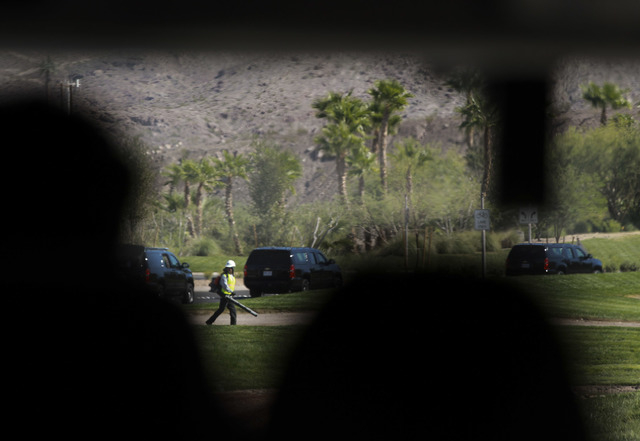Obama’s immigration order is nothing like what you’ve heard
There are those who will tell you President Barack Obama’s newest executive order on immigration — set to be signed today right here in Las Vegas — is an unprecedented, unconstitutional abuse of his authority implemented for political purposes and little more.
Those people are all wrong.
Moreover, the increasingly absurd criticisms of the president are belied by the opposition’s untenable position: House Republicans don’t want the president to act so they can reserve to themselves the right to defer, stall, delay, ignore, postpone and put off doing anything whatsoever.
Well, nuts to that.
Now, let’s be clear about something: This is, at best, a temporary fix, one that immigrants cannot rely upon to build a permanent life in the United States. It would have been better to fix the problem with legislation introduced, debated and passed in the regular order of Congress.
But we tried that: The Senate passed a bi-partisan comprehensive immigration bill on June 27, 2013, by a vote of 68 to 32. That bill has sat undisturbed in the House ever since, without any hint of action by House leaders. In fact, even unrelated immigration bills by Republican members haven’t made it to the floor.
So after waiting more than a year, the president finally decided to act on his own. He’s done it once before, with the Deferred Action for Childhood Arrivals, extending temporary freedom from deportation to children brought here illegally by their parents who have stayed out of trouble with the law. The order Obama is scheduled to sign today will expand that program.
Two things about this: First, the politics. If Obama really wanted to garner the political support of the Latino community, he’d have signed this order before the Nov. 4 elections, where Democrats got stomped. Some Latino voters cited Obama’s decision to wait until after the election for action on immigration as a reason for staying home rather than supporting Democratic candidates.
Second, it’s not as if Obama has failed to enforce the law. In fact, in the Latino community, Obama is still known as the “Deporter in Chief” because he’s on track to outpace his predecessors for the total number of people he’s sent home by the time he finishes his second term.
Not only that, but according to the New York Times, of about 11.7 million illegal immigrants in the United States, just 1.2 million are currently eligible for deportation deferrals. After the executive order is signed, about 5.3 million people total will be eligible, the Times estimates, which means 6.4 million can still be deported.
Back in November 2013, Obama was confronted by a heckler in San Francisco who demanded he simply stop all deportations. “You have the power to stop the deportations for all undocumented immigrants,” the protester said.
“Actually, I don’t,” Obama replied. “If in fact I could pass all these laws without Congress, I would do so. But we’re also a nation of laws, that’s part of our tradition.”
But when it comes to enforcing those laws, there’s plenty of discretion. And if the president wants to direct his executive agencies to prioritize deportations of violent criminals, terrorism suspects, repeat immigration violators and other, more obviously dangerous people over peaceful, law-abiding kids and their parents, he has the absolute authority to do so. Not only that, but it makes obvious sense.
That doesn’t mean they will get to stay here forever. It doesn’t put them on a path to citizenship. It’s not a permanent solution. But it’s entirely, obviously and manifestly constitutional, no matter how many rants claim otherwise. And the fact that previous presidents in different circumstances have also taken very similar executive actions only underscores that point.
Finally, the president himself understands the temporary nature of his action. “These are common-sense steps, but only Congress can finish the job,” the White House said in a statement released before the president’s speech. “As the president acts, he’ll continue to work with Congress on a comprehensive, bi-partisan bill — like the one passed by the Senate more than a year ago — that can replace these actions and fix the whole system.”
That sounds like a good idea, if only there were people in the House willing to get to work. Until then, a temporary, imperfect solution will just have to do.
Steve Sebelius is a Review-Journal political columnist who blogs at SlashPolitics.com. Follow him on Twitter (@SteveSebelius) or reach him at 702-387-5276 or SSebelius@reviewjournal.com.






















